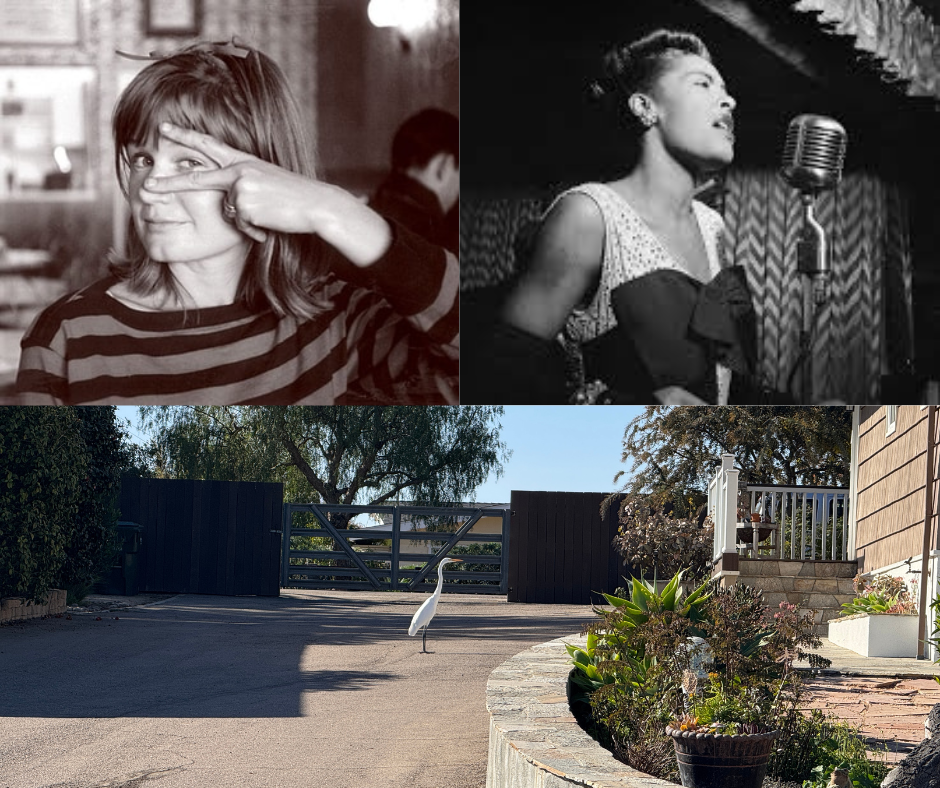There’s a particular kind of grace that emerges when suffering is not avoided, but befriended. Pema Chödrön, our beloved Buddhist nun, calls it “leaning into the sharp points.” Her teachings remind me that life doesn’t need to be tidy to be beautiful—that peace can be found even in the middle of chaos. This paradox echoes far beyond the cushion of meditation, reaching into wild marshlands and smoky jazz clubs alike.
The snowy egret—slender, poised, and utterly undisturbed as it tiptoes through muddy waters with Zen-like stillness, does not flinch at the swirls of silt beneath it’s feet.
“It is presence incarnate” as Thich Nhat Hanh has said. Just like Chödrön’s call to remain with discomfort rather than escape it, the egret remains in the murk and finds it’s sustenance there.
Billie Holiday, too, was a snowy egret of sorts—an embodiment of elegance in sorrow. From my teens I would listen to her voice as it cracked with ache & yet soared with sincerity.
“She sang of pain not to wallow in it, but to transform it.” As my dear friend Stephen Giacopuzzi would tell me every time we would play her records.
It’s much like Pema’s encouragement to use suffering as raw material for awakening. “Strange Fruit” and “God Bless the Child” are not just songs; they are dharma talks set to music, stripped in velvet and soul.
All three—Pema, Billie & the Snowy Egret—teach us to stay. To stand still in the storm. To find rhythm in heartbreak. To allow grief to carve wisdom.
Whether it’s a bird stepping through brackish water, a teacher speaking to the open wound of humanity, or a singer pouring jazz into the fractures of her life—each whispers the same message: there is beauty in not running.


